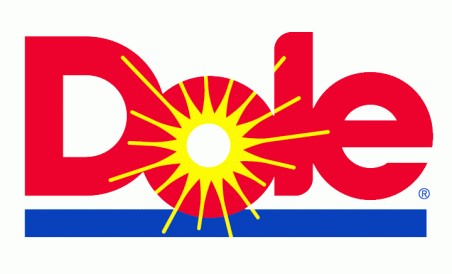 Top Class Action Lawsuits
Top Class Action Lawsuits
Dole Delivering Nutrition But Not Compensation? New year, old tricks…This time it’s Dole Food Company—they’re facing a wage and hour class action lawsuit over allegations it fails to pay its employees for the time they spend dressing and undressing in sanitary clothing, which they must wear during work. According to the Dole class action lawsuit, “The time that Dole requires its employees to work without compensation on a daily basis is substantial.”
The Dole lawsuit alleges specifically that dressing in protective gear and sanitizing hands and shoe soles are food safety practices that workers are required to use to comply with Dole’s policies. “All of these activities are performed for the benefit of Dole,” the lawsuit states.
Lead plaintiff, Jose Luis Hernandez, who worked in Dole’s Soledad plant, alleges Dole also routinely violated lunch and rest break requirements because employees were required to “don and doff” their gear, and that time shouldn’t be considered part of the employees’ break time. “Dole knew or should have known that its policies and practices were expressly contrary to California law and unfair,” the lawsuit states. Go get’em!
Heads Up! Got Kids On The Internet? Ok. Stupid question. Six internet privacy class action lawsuits have been filed against Google Inc. and Viacom Inc. over allegations the companies illegally track the online activities of children under 13. These actions, according to the Google and Viacom privacy lawsuits, violate both the federal Video Privacy Protection Act (VPPA) and the federal Wiretap Act.
Specifically, the lawsuits claim that Viacom and Google placed cookies on users’ computers enabling the companies to unlawfully track the Internet and video-viewing activities of minors who visited Viacom-owned sites like Nick.com and NickJr.com. The information was used to target advertising, the lawsuits allege.
The cookies allegedly remained on computers even after the children had informed Viacom through the sign-up process that they were under 13.
“The plaintiffs, and others similarly situated, suffered invasions of privacy in direct violation of federal law when Viacom and Google developed, implemented and profited from cookies designed to track the Internet communications and video viewing habits of minor children under the age of 13,” the lawsuits state.
The plaintiffs in all six class action lawsuits are seeking to certify a nationwide class of children under 13 who had cookies placed their computers by Google and Viacom for the purposes of tracking their viewing habits, without the plaintiffs’ knowledge. Plaintiffs are also proposing a subclass of children who engaged with video materials that Viacom knowingly allowed Google to track through a specialized cookie.
Top Settlements
Chase Maxed Out Its Good Credit…or so it seems, and will have to pony up a $110 million—the amount that recently received final court approval—as settlement of a Chase overdraft fees class action lawsuit.
The settlement is the latest settlement to be reached in the massive class action lawsuit involving over 30 banks who are alleged to have manipulated customers transactions in such a way as to maximize overdraft fees.
The allegations also state that rather than declining transactions on an account that has insufficient funds to cover a purchase, Chase Bank authorized the transactions and then processed them in highest to lowest dollar order, which effectively increased the number of overdraft fees charged.
As part of the settlement agreement, Chase will, for a period of at least two years, cease charging overdraft fees on individual debit card transactions of $5.00 or less.
Class members include anyone who (A) held a Chase, Bank One, or Bank of New York consumer deposit account accessible with a Chase debit card anytime between January 1, 2003 and March 29, 2010; and (B) were charged one or more overdraft fees as a result of Chase’s practice of posting debit card transactions from highest to lower dollar amount.
Ho Ho Ho, It’s to the Bar I go. See you there!
